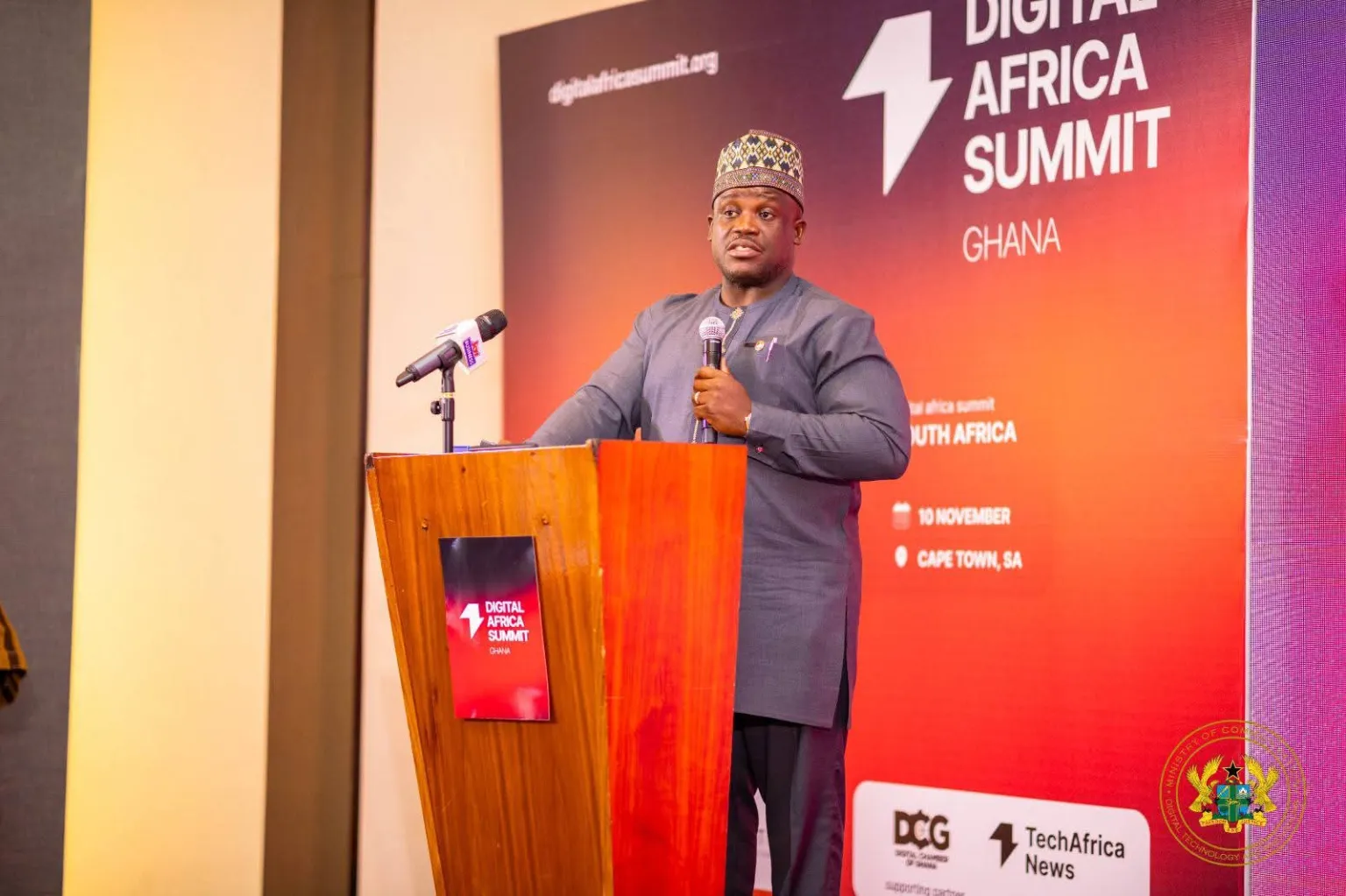Read also:
- Kennedy Agyapong Makes Passionate Appeal to NPP Delegates
- MTN Ghana Wins Big at 2025 Investor Relations Leadership Awards Africa
- MTN Ghana Supports Business Training for Persons with Disabilities
- MDC Cracks Down on Quack Doctors and Unregulated Practitioners
- Sarkodie and Shatta Wale: A Collaboration on the Horizon,?.
Ghana has launched a four-pillar digital strategy aimed at driving inclusive growth and competitiveness in the technology sector. The strategy is anchored on infrastructure, skills, trust, and innovation, with the government outlining five key priorities to unlock Ghana’s digital potential.
The Minister for Communication, Digital Technology and Innovations, Samuel Nartey George, presented the strategic framework at the Digital Africa Summit in Accra, emphasizing connectivity for productivity, scaling digital skills with gender inclusion, digital finance, robust trust frameworks, and strategic technology procurement as core focus areas.
Ghana’s digital economic policy and strategy are designed to create a more enabling environment for innovation, with intentional measures taken over the past eight months such as expanding internet infrastructure, reducing data costs, and improving competition. The country has also invested in digital infrastructure and innovation ecosystems.
The One Million Coders Program targets training 100,000 young Ghanaians with essential digital skills by the end of 2025, positioning the country’s youth for opportunities in the expanding digital economy. Over 90,000 applicants have already signed up.
Ghana has expanded internet infrastructure, reduced data costs, and improved competition, creating a more enabling environment for innovation. The National Identification System, known as the Ghana Card, provides a single source of truth for identity management, enabling seamless authentication across government services and financial institutions.
The government has also partnered with the UAE to develop a $1 billion tech and innovation hub, spanning 25 square kilometers, attracting over 11,000 global companies, and serving as a magnet for talent, trade, and technology.
The key policy focus areas include improving connectivity to enhance productivity and economic growth, providing digital skills training with a focus on gender inclusion, promoting digital finance adoption to increase financial inclusion, establishing strong trust frameworks to ensure cybersecurity and data protection, and implementing smarter technology procurement practices to drive innovation and efficiency.
Despite progress in Ghana’s digital landscape, challenges persist, including high data costs, uneven service quality, and escalating cybersecurity threats. The country has recorded over 6,400 cyber incidents this year, underscoring the critical need for enhanced digital security measures. A recent GSMA report reveals that strategic digital reforms could add $20 billion to Ghana’s economy by 2030, highlighting the significant potential impact of the government’s digital transformation agenda.




